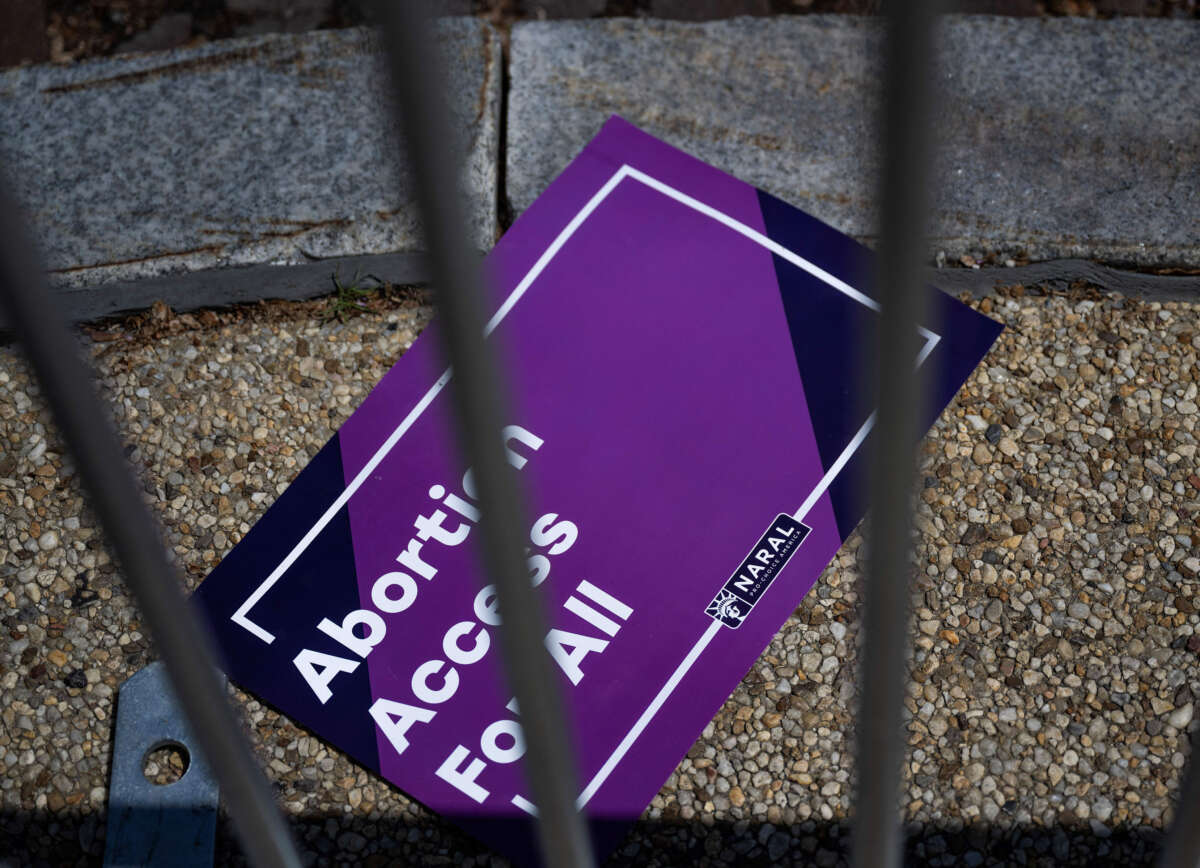Did you know that Truthout is a nonprofit and independently funded by readers like you? If you value what we do, please support our work with a donation.
Around 171,300 people traveled across state lines to obtain abortion services in 2023, according to new figures obtained and published by the Guttmacher Institute.
The figures highlight a staggering increase in the number of people traveling to get an abortion in the U.S. in the wake of the Supreme Court’s upending of federally recognized rights to that procedure the year before.
The year 2023 was the first full year that abortion rights weren’t protected nationally under the purview of Roe v. Wade, a Supreme Court decision from 1973 that mandated all states recognize the right to the procedure and guarantee access. That precedent was ended when the Court, shifting dramatically to the right in recent years, decided in Dobbs v. Jackson Women’s Health to overturn the previous standard.
That ruling didn’t outright ban abortion but left the matter for the states to decide. Notably, while many states already had heavily restricted policies in place under Roe, a slew of them also had “trigger” laws on the books that automatically banned abortion services following Roe’s overturning, while others passed stricter laws as a result of the ruling. Some states passed new statutes protecting and expanding abortion rights, causing them to become abortion “sanctuary” states to which those living in the stricter areas could travel.
Although better than having no option at all, requiring people to travel to obtain reproductive health care is incredibly burdensome for myriad reasons.
“Traveling for abortion care requires individuals to overcome huge financial and logistical barriers,” said Isaac Maddow-Zimet, a data scientist at Guttmacher and project lead of the study, “and our findings show just how far people will travel to obtain the care they want and deserve.
The 171,300 individuals who traveled from their home state to another is double the number seen in 2020. In states without total abortion bans, more than 1 million abortions were performed — the highest rate in over a decade.
States like Illinois and Florida, which border stricter states with short gestational limits or outright bans on abortion in 2023, saw huge influxes of travelers seeking abortion services, according to Guttmacher’s research. But Florida became one of those stricter states earlier this year, as its six-week abortion ban — one of the harshest bans in the country — went into effect this past spring.
Around 37,000 individuals traveled to Illinois last year to obtain an abortion. Close to 16,000 traveled to North Carolina, which has stricter abortion regulations than most but is more lenient than many of its neighboring states.
Texas had the most residents leave its jurisdiction to seek out abortion services. Around 14,000 from that state alone traveled to neighboring New Mexico, Guttmacher noted.
The amount of travel required to obtain an abortion astounded abortion rights advocates.
“We’re having people travel hundreds or thousands of miles for a procedure that typically takes less than 10 minutes and can be done in a doctor’s office setting,” said Amy Hagstrom Miller, founder of Whole Woman’s Health, speaking to The New York Times about the findings in the Guttmacher report. “Nobody does that for any other medical procedure.”
Fourteen states in the U.S. have complete abortion bans in place, with many of the most restrictive states being located in the South. States with fewer restrictions tend to be located near the West Coast and northeastern parts of the country.
Some restrictive states are being challenged by residents on their extreme abortion bans this fall. So far, five states have confirmed measures on their ballots this November that would enact or expand abortion rights, including Florida and South Dakota, which have a six-week ban and a total abortion ban in place, respectively. Other states, like Arizona, Missouri and Arkansas, are likely to see a ballot measure affirmed by state officials soon, to be included in the fall election.
Polling across the country indicates overwhelming support for abortion rights, and a clear repudiation of the Supreme Court’s Dobbs ruling last year. According to a recent Gallup poll, 85 percent of Americans believe abortion should be legal either under all or most circumstances, with only 12 percent saying the procedure should be illegal altogether.
The issue of abortion will likely matter in congressional races, and the presidential race, too. Within that same Gallup poll, nearly a third of voters say they will only vote for a candidate that will support their own views on abortion, with respondents in that sub-group stating by a 3-to-1 margin that they will only vote for someone if they have “pro-choice” views.
Media that fights fascism
Truthout is funded almost entirely by readers — that’s why we can speak truth to power and cut against the mainstream narrative. But independent journalists at Truthout face mounting political repression under Trump.
We rely on your support to survive McCarthyist censorship. Please make a tax-deductible one-time or monthly donation.
